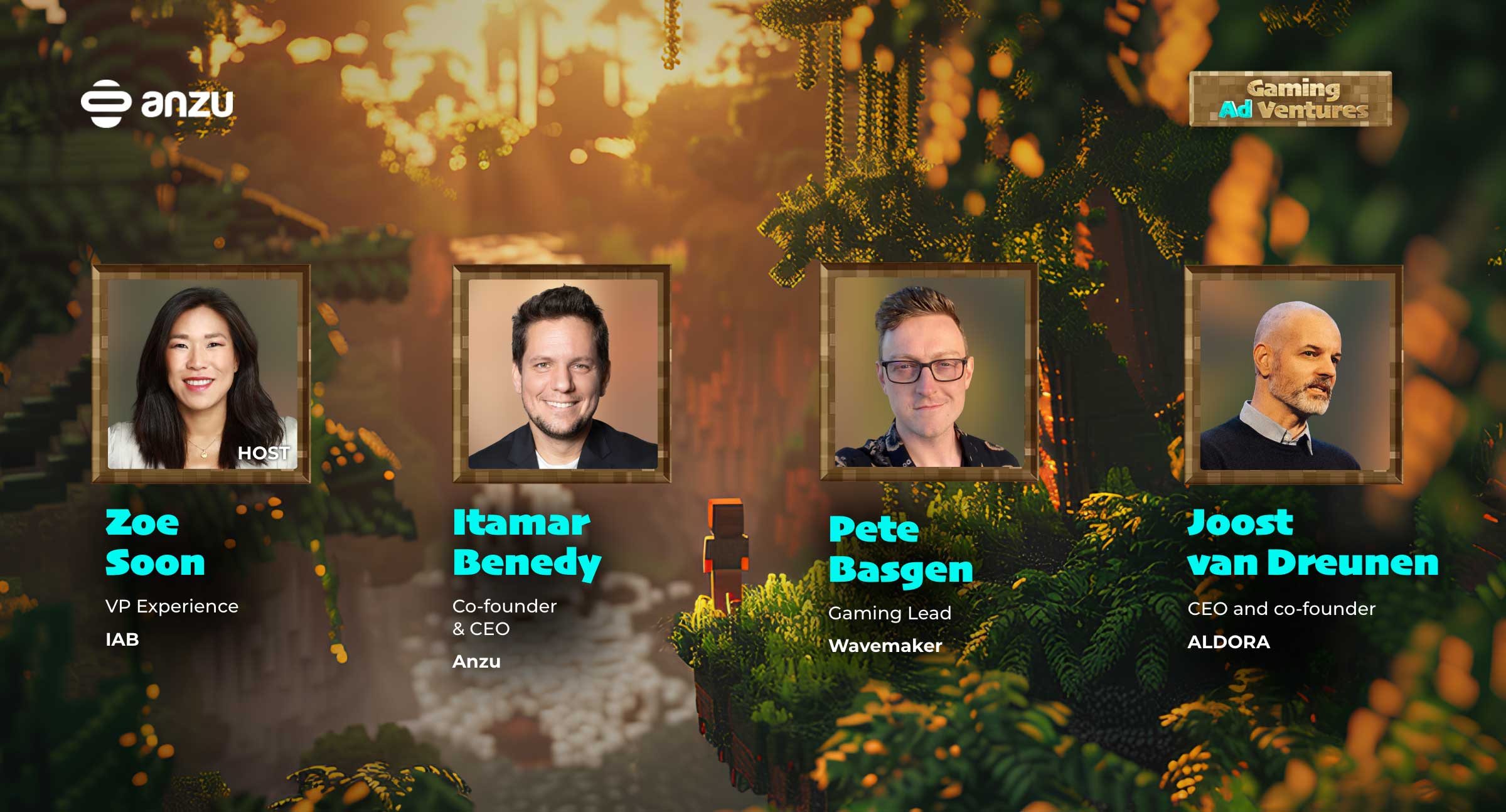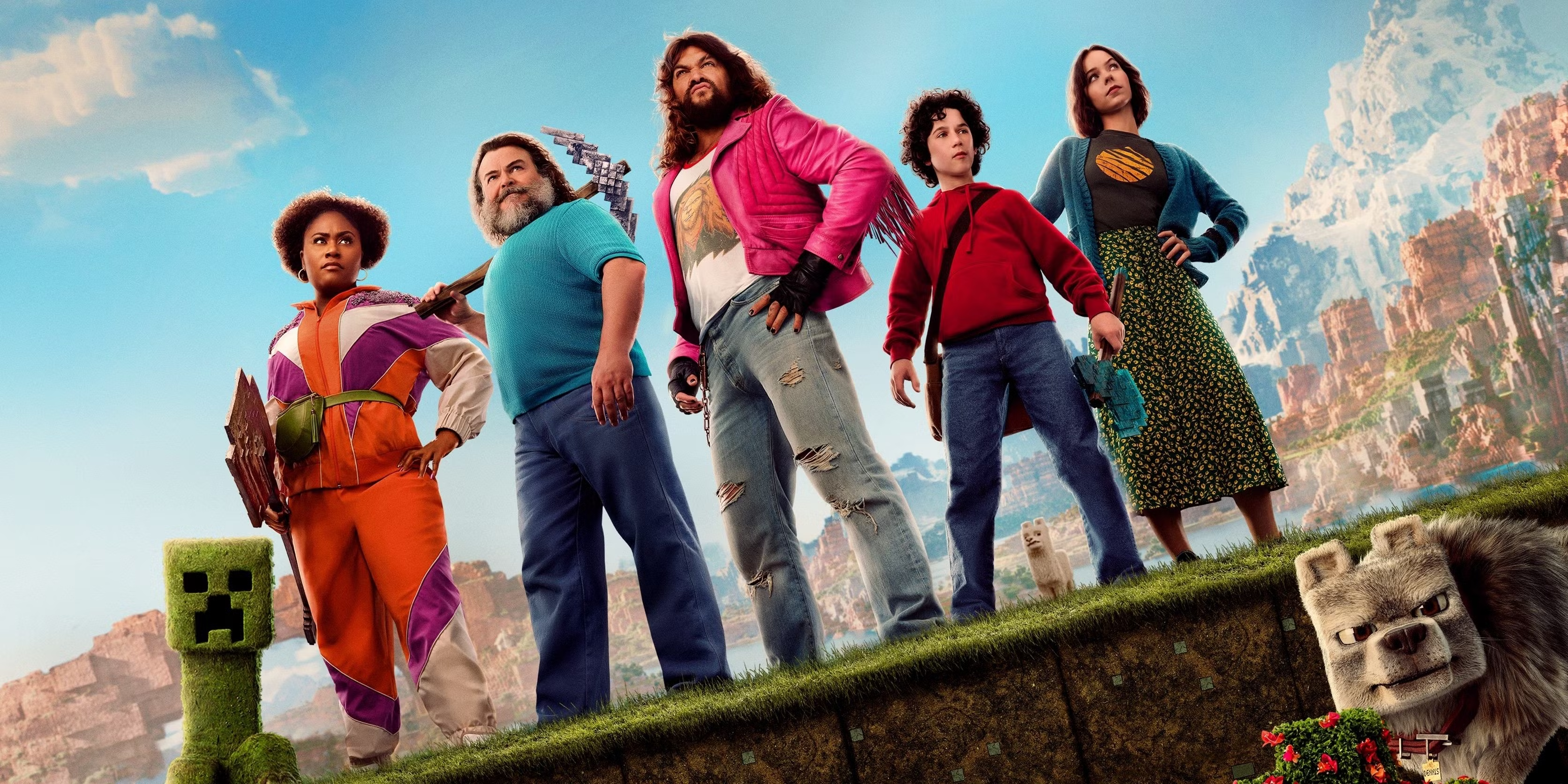- Newsroom
- >
- Gaming Is Having a Media Moment, And Advertisers Can’t Afford to Miss It

April 24, 2025
By Nick Woodford
Topics:
Gaming Is Having a Media Moment, And Advertisers Can’t Afford to Miss It
The Evolution of Portable Play
Gaming is no longer a subculture. It’s the cultural center of gravity for younger audiences. As traditional media grapples with fragmentation, gaming is unifying communities, driving IP expansion, and becoming the next big arena for brand storytelling.
To unpack these developments, we launched the first episode of our new Gaming Ad Ventures series. For this session, we brought together four experts in advertising and gaming to discuss the biggest shifts shaping the space and where these trends might take us next.
Zoe Soon, VP of Experience at IAB, hosted the discussion with Pete Basgen, Gaming Lead at Wavemaker; Joost van Dreunen, CEO and Co-Founder at ALDORA; and Itamar Benedy, Co-Founder & CEO at Anzu.
Gaming’s IP Era Is Here
One of the most talked-about topics was how video game IPs continue to lead global entertainment. The Minecraft movie smashed box office records, becoming the highest-grossing film of the year so far. It debuted with $163 million domestically and $313 million globally, surpassing The Super Mario Bros. Movie (2023) for the biggest opening weekend ever for a video game adaptation.

“If the 2010s belonged to comic book IP, the 2020s are all about gaming,” said Pete. “We’ve been saying in gaming presentations for years now that the games industry is bigger than music and movies combined. Now it's actively conquering those industries, at least IP-wise. I think it’s irrefutable at this point that gaming IP has conquered every other IP vertical.”
The conversation highlighted that it’s not just film where gaming IP is flourishing. Artists like Charlie XCX, Travis Scott, and Ariana Grande have launched interactive concerts inside games like Roblox and Fortnite, not just to perform but to build immersive brand worlds that extend across music, fashion, and gaming communities.
These activations become social moments, viral content, and meme fodder, and they’re increasingly where Gen Z and Gen Alpha show up. This convergence opens the door for new creative advertising formats, from branded virtual fashion items and in-game music drops to interactive fan experiences and user-generated campaigns that stretch far beyond the game itself.
“Gaming, music, and platforms like TikTok are no longer separate streams; they’re one cultural pool,” expressed Pete. “It’s a huge ecosystem, and all the channels are creating content with each other the entire time.” Advertisers need to keep this in mind if they want to remain culturally relevant.
The Cost of Great Games and the Need for New Models
A key focus of the discussion was the Switch 2, with Nintendo recently revealing a higher-than-expected price point for the console and its games. Joost also referenced the upcoming GTA VI, rumored to launch at $100. He acknowledged he’d still buy both — but noted that’s coming from a place of privilege. These price points, he warned, are transforming the industry.
“These prices have forced a bifurcation in the gaming audience. In short, as development costs rise, we’re seeing a growing gap between blockbuster titles and everyone else, squeezing out the middle ground. Gaming has become so expensive that it's unsustainable, which is why you see the disappearance of a gaming middle class.
There are very few AA studios out there anymore. As a result, you have the Take-Twos and the EAs dominating with AAA franchises that they can invest billions into. GTA VI reportedly has a $2 billion budget, and the most recent Call of Duty cost upwards of $700 million to produce. That’s a lot of money for one title, and not many players or investors can carry that load, which is why we’re seeing a massive shift toward mobile developers and indie creators.”

Zoe posed an essential question based on this: With gaming becoming so culturally central, who actually gets to participate?
Itamar responded, “Gaming should be open to everyone, not gated behind a paywall for the privileged.” The group agreed that part of the solution lies in rethinking monetization. Rather than relying solely on up-front sticker prices or microtransactions, in-game advertising can help democratize access, enabling more players to experience premium content while giving developers new ways to fund their work.
“This model mirrors what we’ve seen work in other industries,” Itamar added. “YouTube, Instagram, and TikTok all thrive on value exchanges based on attention, not up-front payment. Gaming is the last major entertainment format to fully embrace this model — and that’s starting to change.”
From Console Wars to Platform Fluidity
As new economic models reshape who gets to play, technology is reshaping how we play, and as part of this, the idea of 'console gaming' is dissolving. Thanks to cloud play, gaming is now a platform-agnostic experience that can move fluidly between screens. Pete noted, “Gamers should be able to play on the device they want, and for brands, that changes how and where they advertise.”

It’s not just gaming platforms that are evolving. “Gaming and CTV are going to come together,” Pete said. “Over the next decade, people will get used to pairing a controller to their TV instead of thinking in terms of consoles.” This shift could dramatically reduce cost and accessibility barriers — a point Joost echoed earlier.
Joost also offered a broader media perspective: “Publishers used to measure success by units sold. Now they talk about how many people they reach through their player networks. They’re borrowing media language, and that tells you where things are headed.”
Although rising costs are creating new hurdles, technologies like intrinsic in-game advertising and cloud gaming are starting to lower them, ensuring that gaming remains open and inclusive.
Watch the full conversation on demand here to explore why gaming is quickly becoming the most important media channel for reaching engaged audiences.

Nick is Anzu's Content Lead. As a gamer with a background in AdTech, he has a unique perspective on the industry and the in-game advertising sector.